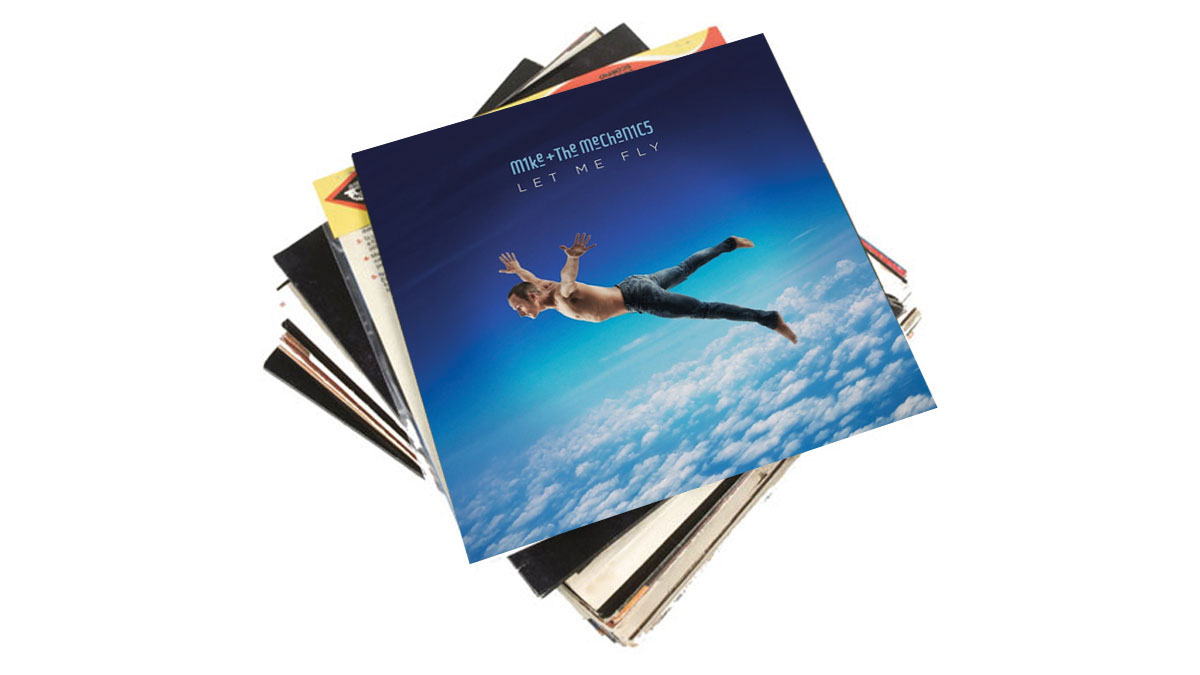Mike Rutherford's 10 tips for guitarists
Six-string wisdom from the versatile Mechanic and Genesis man

With the release of a new Mike + The Mechanics album and an ongoing tour, we talk to the Genesis man about putting the old band back together again…
A few years ago, Mike Rutherford’s side project, Mike + The Mechanics, was placed on permanent hiatus and it was only when songs came along that seemed to fit the Mechanics’ style did he venture back into action. Recently, the new album, Let Me Fly, saw the band out and about in theatres across the UK and USA.
Meanwhile, it’s been 10 years since we saw Genesis in action, but rumours of a forthcoming reunion have been rife, bolstered by Phil Collins’ return to touring this summer.
“There’s no plans, but whatever I say, like, ‘There’s no plans, but we’re all good friends,’ it reads, ‘Phil’s got his diaries out, looking at dates - it’s on!’” Mike laughs when we pop the inevitable question. “I’ve said for years, ‘Never say never…”
1. Sometimes it’s good to go back
“After Paul Carrack and I wound it up, it must have been a few years. I thought that was it: we had a great time, wrote some great songs. Then when I was writing some songs about six or seven years ago, I thought, ‘These sound like Mechanics songs…’ So I thought, ‘What am I going to do?’
When The Mechanics restarted, I realised that the only way to actually get a bit of a vibe going was to do a bit of touring
“The first album was a bit of a punt. We had six singers in total - I wrote the songs first and then found the singers - and I went back to the same process, really. Write some songs, find a couple of singers. A friend of mine, Brian Rawling from Metrophonic, has been a friend and a fan for a long time. He recommended Andrew [Roachford] and Tim Howar and it sort of worked.”
2. Take the music to the people
“When The Mechanics restarted, I realised that the only way to actually get a bit of a vibe going was to do a bit of touring. And I realised that nobody had heard half these songs very much.
Want all the hottest music and gear news, reviews, deals, features and more, direct to your inbox? Sign up here.
“I mean, Paul Carrack plays Living Years and Over My Shoulder, but all the others that Paul Young sang with The Mechanics hadn’t been heard very much because we hadn’t played them much live, so in a sense, it was a good way to start. You don’t sell a lot of singles these days, but luckily we got a lot of support from Radio 2. What you’re really after is people hearing the songs a bit and going, ‘Oh, that’s Mike + The Mechanics back.’”
3. The band that plays together…
“Genesis used to go in and write and play at the same time and we’d record it, all together. The only difference was, after a while Phil would do a drum machine so he could be free to sing, so we’d record to a loop. That got us going. I’d put my guitar parts down, Tony [Banks] would put his keyboard parts down, Phil would add voice. He would then drum and then we’d go back and redo our parts. We’d keep some of it, just make it a little bit better. So the initial ingredients were there, which I like.
“People think we’re very serious in Genesis, but the amount of laughter that we have all together is just fantastic. Genesis has a rather musicians’ musical approach, slightly more theoretical - chords and time signatures, you know?”
4. Co-operation is always a good plan
“I always co-write. If I’m in a room with Phil and Tony and something starts, it will go a certain way because they’re there with me and their influence and how they want to take it communally takes us somewhere else. It’s still the same process [with The Mechanics], really, but because of the different people involved, it will take a different route.
I think that Genesis kept going for so long was because of the solo stuff, the variety
“The key to remember is that the solo stuff was never done because of frustration. When we started the solo careers - Phil’s stuff and The Mechanics - Genesis was having the most wonderful time. We were flying. I think that Genesis kept going for so long was because of the solo stuff, the variety, so we could reappear, the three of us, looking forward to playing together again.”
5. Structure the process of songwriting
“The ideal thing is when the music and the words - or the key words - come at the same time. A song on this album, the first single, Don’t Know What Came Over Me, which I co-wrote with Roachford and Clark Datchler, we had that line when Clark first came in - and the melody and the idea. You’re starting with the main hook, the main lyric, and that’s the best way to be. Isn’t always the case…
“The best thing is when the key melody and the key words come at the same time. The title track, Let Me Fly, was the first thing I ever did on the album. Sitting down with Clark on the first day, I had some chords and the phrase ‘Let me fly’ just came out naturally.”
6. Trust your original song blueprint
“When I write a song at home, by the time it leaves my house, I’ve got my main guitar parts, pedals and a working keyboard sound and a guide voice. I do a lot of programming on drums - I’ve got an old Akai MP3000, which I love, it’s really crunchy.
“I’ve got a lot of my loops and beats that I like to program. I send it off to the other guys and they do a bit of work on it, then it comes back and I listen to it and tell them what I liked. But we kept true to that initial sound; we didn’t try, like we have done in the past, to start again. So we kept that initial demo - quirky, early sound - on the tracks and it helped a lot.”

7. Be an ace on bass
“I probably play a bit more guitar than bass now. At Charterhouse, the school band was myself and Tony Banks, Peter Gabriel and Ant Phillips. Ant and I played a lot of stuff on two guitars, but he was a better guitarist so I played bass. But I always played a lot of guitar and bass at the same time, I never just played bass.
“A big part of what I do involves the bass pedals. When I write, I’m playing chords and I’ll always have a bassline going, and because the bass pedals are there, you put some funny, odd notes in you wouldn’t normally do afterwards. But if you do it when you write it, it stretches you a bit.”
8. Always have a plan B
I went back to the [Fender] DeVille. They have a sound that places the guitar in a certain place, where you can hear it
“The last Genesis tour we did in 2007, I prepared the entire set on one of those Line 6 amps - all my echoes, everything. When I played it in the band rehearsals, I couldn’t hear it, it wasn’t there. So I went back to the [Fender] DeVille. They have a sound that places the guitar in a certain place, where you can hear it.
“I use a couple of SD echoes. I’ve only got one box, a T-Rex fuzz - that’s all I use. I’ve got a Yamaha TRB-4P bass and an Ampeg amp. It doesn’t matter where the tone controls are, it always sounds like an Ampeg. I use an octave divider - sometimes the bottom D is not deep enough and so you mix it in and it’s good.”
9. Sometimes it's a case of vive la difference
“Obviously, Genesis is very luxurious travel in private planes. The Mechanics haven’t been in a private plane yet! So it’s a slightly more down to earth thing and Genesis is a big, powerful, dark sound - very moody. The Mechanics have a lot more light, a lot more ‘up-ness’ on stage. The two singers are very engaging and it’s a different feeling and, in a nice way, it’s a contrast.”
10. Experience the smell of greasepaint
“I love English theatres, the old ones with faded seats with a few cigarette burns. It’s been a hard five years with The Mechanics. At my age, I thought, ‘Blimey’ - I had to go and prove to the crowd we’re a good live band and there was no shortcut: you had to go and play slightly smaller theatres first of all, like you did in the '70s.
“I was on stage last summer in one of the old theatres, thinking, ‘I was here 45 years ago and I’m still here - is that okay? Or should I just pack up?’ But I have friends who’ve retired and I see how they end up… I love writing music, that’s where the whole thing starts.”
Mike + The Mechanics’ latest album, Let Me Fly, is available now on BMG.

